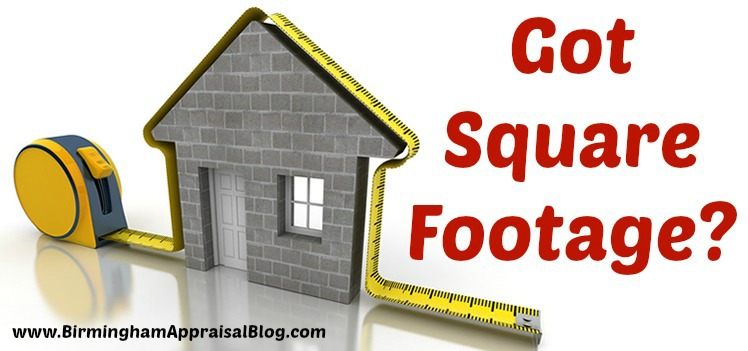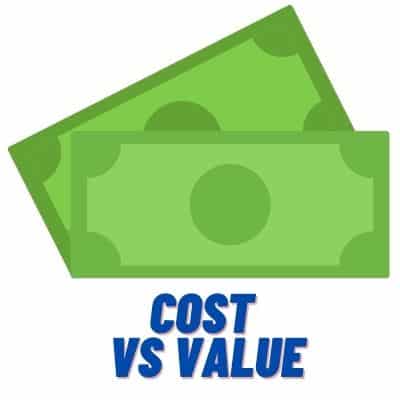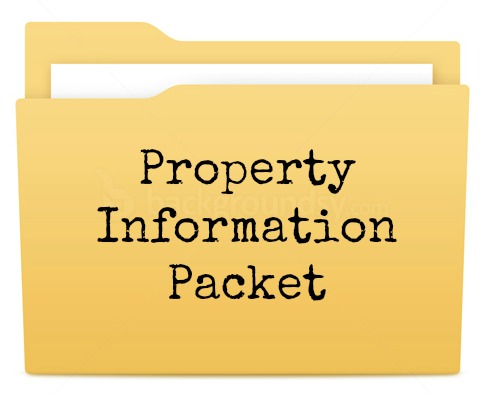How To Avoid Appraisal Problems Before They Become Problems
I have heard numerous stories recently about houses not appraising for the contract amount. How could this be if the market is so hot? Today I’m going to discuss possible ways to avoid appraisal problems in today’s crazy market.
Please keep in mind these are my own personal opinions, however, they are based on experience and first-hand knowledge.

1) Don’t take the highest offer (or even the second-highest)- The highest offer is not always the best offer. The market we are in right now feels a lot like an auction. Do you know how an auction works? The person making the highest offer wins the item.
Merriam-Webster defines an auction as:
“a sale of the property to the highest bidder”.
In many situations these days homebuyers are offering their highest bid on a property to try and win the deal.
They are motivated to do this because of the minimal housing inventory available. They may have also lost out on previous homes they have looked at because someone offered more and they don’t want that to happen again.
Unless it is a cash sale, sellers who accept the highest offer may find the deal falling through because the property does not appraise for the unrealistic offer amount.
An auction price DOES NOT equal market value. If it did banks would not need an appraisal.
It reminds me of what happens after a natural disaster. People in the affected areas are willing to pay double the price for things such as chainsaws or other items necessary to fix the problem, however, that does not mean that what they are paying is the market value of that item.
Buyers are in such a state of panic right now because they feel they have to get into a house due to the good interest rates (and coupled with low inventory) that they will pay way over the asking price. Will increasing interest rates put the brakes on this overheated housing market?
2) Get an appraisal before listing – A pre-listing appraisal can possibly help reduce the likelihood that there will be big discrepancies between the contract price and the appraisal that will be performed for the mortgage loan.
between the contract price and the appraisal that will be performed for the mortgage loan.
Many times in today’s hot market sellers might think that they can ask what they want for their home and they will get it. They may be able to find someone willing to pay over market value, however, unless they have the cash to pay the deal may never materialize.
A pre-listing appraisal will provide an unbiased professional opinion of value based on what other similar homes have sold for. In addition, it will include active listings and pending sales so that not only historical data will be considered but also comparables that will be competing with it (active listings) and fresh pending sales that have recently gone under contract.
A pre-listing appraisal will reflect what the majority of buyers would pay for the property and the amount the bank would lend on.
3) Have your home accurately measured (if you have a good agent and just need the correct SF) – If you are a homeowner and have an agent you trust to price the home accurately or you are an agent and are confident in your ability to price the home an appraisal may not be needed. Even though you don’t need an appraisal you may want to get the home professionally measured.
agent you trust to price the home accurately or you are an agent and are confident in your ability to price the home an appraisal may not be needed. Even though you don’t need an appraisal you may want to get the home professionally measured.
I say this based on many years of experience in comparing what the MLS shows the square footage to be versus the actual measurements. An error in the square footage can cause the list price to be off significantly which can result in either money being left on the table or the home being overpriced and staying on the market for an extended period of time.
These two outcomes are both undesirable. They can be overcome by getting the home accurately measured in the same way that the mortgage appraiser will measure it when it eventually goes under contract.
4) Don’t over-improve your property – There is a big misunderstanding among the public that cost and value are the same things. This could not be further from the truth.
could not be further from the truth.
A $25,000 investment does not always translate into a dollar-for-dollar increase in the value of the home. Further proof of the differences between cost and value can be seen by looking at an updated list of the cost of common improvements and their resulting resale value. This information is available at the Remodeling.hw.net website.
To help avoid this problem it is a good idea to keep an eye on the cost of the home improvements to be done. Combining this with the knowledge of what the improvement will add in value can help to minimize the difference between the two.
It goes without saying that it is very important to make sure that the improvements made fit into what is typical for the neighborhood. You will get a maximum return on value if the improvements are typical for the area.
5) Require the buyer to include an appraisal gap coverage clause in the contract – Another way to prevent potential appraisal problems is to include appraisal gap coverage.
What is appraisal gap coverage you ask? The appraisal gap is the difference between the contract amount and what the home appraises for.
An appraisal gap coverage clause is a guarantee included in the contract that if the home does not appraise the buyer will pay the difference between the appraisal value and the contract amount.
An appraisal gap coverage clause is good for the seller because they will know that the appraisal will not be an issue and cause the deal to fall apart should the property not appraise. It is good for the buyer because it can give them an advantage over other buyers that may not have the funds to make up the difference
6) Make sure your home is in tip-top shape – Some sellers may think that they can sell their home in today’s market no matter what shape it is in. They may be partially right.
Even though many buyers these days are desperate to get into a house no matter what shape it is in this can still potentially cause appraisal problems. This is especially true if the buyer is using FHA financing.
As most people know, FHA appraisal guidelines are more strict than conventional or other forms of financing. This type of financing is concerned with the three S’s, which are Safety, Soundness, and Security.
Safety concerns the health and well-being of the occupants. If they could be harmed physically in any way the problem must be fixed.
The second “S” is Soundness and relates to whether the property is structurally sound. Examples of problems that may need to be repaired here include settlement cracks, unsafe decks or porches, and out-of-date roofing to name a few.
The last “S” is Security. Many people confuse this with whether the home has adequate door locks or if the windows can be shut property.
Security in this instance relates to whether the property can adequately be used as collateral for a loan. If the home is not marketable then it would not be good collateral and if HUD needed to foreclose on the property they may not be able to sell it, therefore, it would not be good security.
In a conventional appraisal, many of the items noted would be included but it may not be necessary to fix them and the appraisal would be done “as-is”, however, in an FHA appraisal repairs would have to be made before the loan closes. Addressing these issues upfront can help reduce appraisal problems.
7) Provide market support for the contract upfront to the appraiser for consideration – I hate to be blunt but if an agent thinks that a home is worth the contract amount, even though it was bid up much higher than the list price, then they need to be prepared to provide market evidence to the appraiser.
home is worth the contract amount, even though it was bid up much higher than the list price, then they need to be prepared to provide market evidence to the appraiser.
This evidence should be in the form of comparable sales that support the contract amount. The sales should have occurred recently and they should be physically similar to the subject property in square footage, features, and quality. In addition, they should come from a similar competitive market area.
As I stated previously the market we are currently in can be compared to an auction. Buyers are so desperate to get into a house that they will bid way over the list price to win the deal, however, this does not mean the property will appraise for what they have offered.
If there is no market support for the contract amount this can cause appraisal problems. By being aware of what can be supported by the market, agents can help prevent potential appraisal problems.
Question
If you are an appraiser do you have anything else to add to help prevent appraisal issues? If you are an agent do you have any questions about what could potentially be an appraisal problem? If so, leave a comment below and as always, thanks for reading.
Great advice for those relying on appraisals in this hyper appreciating market.
Thanks, Gabe.
Tom, I just love your straight-forward commentary! Excellent points; as usual. Thanks for keeping everyone well-informed during this housing frenzy.
Thanks, Melissa. That means a lot coming from you. I appreciate your kind words.
VA has the same three S’s requirements.
Thanks for sharing that, Pia. I don’t do VA so I was not aware of that. I was under the impression that they had somewhat similar guidelines.
This is a wonky market and the phrase “appraisal gap” becoming a more prominent part of the vernacular is clearly a sign of that.
Thanks very true, Ryan. There seems to be a lot of new things that are going on that reflect this crazy market we are in.